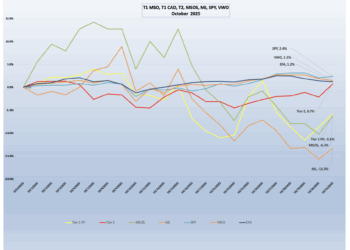The U.S. Treasury’s Financial Crimes Enforcement Network (FinCEN) is urging financial institutions to be on the lookout for evidence of Chinese Money Laundering Networks, which are suspected of being used by Mexico-based drug cartels.
The advisory, released on Aug. 28, included a list of red flags that financial institutions should look for, including clients with unexplainable wealth who use a Chinese passport for identification and claim to be students or retired. It also warns about business accounts owned by Chinese nationals that receive a large number of online deposits or write transfers from other countries.
“Financial institutions, crypto companies, wire emitters need to enhance and increase the suspicious activity reporting and their AML (anti-money laundering) compliance to focus on Chinese money laundering networks,” said Christopher Urben, managing director at Nardello & Co., a corporate investigations firm.
Urben’s comments came during a Sept. 18 hearing before the House Committee on Homeland Security. The hearing covered the growing concern of extensive illicit cannabis cultivation in states with some form of legal cannabis such as Oklahoma and Maine.
FinCEN analyzed 137,153 Bank Secrecy Act reports from January 2020 to December 2024 associated with suspected with Chinese money laundering. Those transactions represent about $312 billion, according to the FinCEN advisory.
“The majority or the significant component to that was the proceeds of Mexican cartel drug trafficking,” said Urben. “I’m not going to put a percentage on it, but you’re talking billions of dollars was the illicit marijuana trade. The money they made off marijuana cultivation essentially put Chinese organized crime within the United States on steroids.”
OK, ME hot beds of illicit cultivation
In recent years Oklahoma emerged as a hot bed of illicit cannabis activity, thanks in part to the relative ease of obtaining a legal cannabis license. Aspiring operators had to show they lived in the state for at least two years, and with a small fee, they could get a cultivation license.
Often, straw buyers were used to obtain those licenses on behalf of non-residents who then trafficked their legally grown cannabis in the illegal market. More recently, the state has cracked down on fraudulent licenses, which has caused the total number of cultivation licenses to drop from a high of about 9,000 at its peak, down to about 2,808 active licenses as of Sept. 15, according to the CRB Monitor database.
“I can say without hesitation that the impact of black market marijuana in Oklahoma is unlike anything I’ve ever encountered in my career,” said Donnie Anderson, director of the Oklahoma Bureau of Narcotics during the same congressional hearing. “What is even more alarming is the growing influence and involvement of the Chinese Communist Party in this illicit industry.”
Maine has also seen an influx of illicit grow sites from operators who are allegedly taking advantage of the state’s caregiver program, where someone can obtain a license allowing them to grow and sell medical cannabis out of a storefront without having to track their product through a state database. The lack of tracking makes it easier for illegal grows to skip the storefront and traffic their product out of state into other illicit markets.
Federal legislators from Maine, including senators Angus King and Susan Collins, urged Attorney General Merrick Garland to address the spread of illicit grows in the state back in 2023.
Urben said that Chinese money laundering networks were connected to illicit grows found in Colorado, Oklahoma, California, Maine and other states.
“So we recognized that not only did we have to attack the Chinese money laundering network, but we also had an opportunity and a need to attack the Chinese cultivation sites that were happening throughout the United States,” said Urben. “The Chinese money launderers are the ones that funded this and set this up.”
Rep. Troy Carter, D-La., argued that banking reform, such as SAFER Banking, would allow state-legal cannabis operators to access more banking services, which would make it easier for the government to track the flow of cannabis-related money.
“When a legitimate operator is shut out of banking, it makes it harder for law enforcement to trace transactions and determine who is compliant and who is not,” he said. “Wouldn’t law enforcement and public safety be better served by a federally regulated system to track the flow of marijuana business’ processing and distribution? Thus making it clear who the real operators are versus the Chinese who are inundating our communities with marijuana that may in fact be tainted?”












